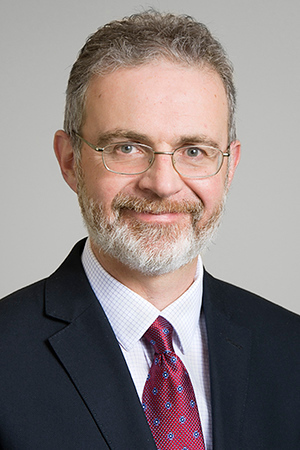Initial Certification Advisory Committee Engages Stakeholders in Medical Physics
by Matthew B. Podgorsak, PhD, ABR Trustee
2020;13(5):8
 Several years ago, the ABR established an Initial Certification Advisory Committee (IC-AC) in medical physics to enhance communication with its stakeholders: exam candidates and leaders of graduate programs, residency programs, and supporting societies. This committee has enabled discussion and two-way feedback regarding the processes, decisions, timing, and delivery of ABR certification exams and provided a valuable mechanism for improving the medical physicist certification experience.
Several years ago, the ABR established an Initial Certification Advisory Committee (IC-AC) in medical physics to enhance communication with its stakeholders: exam candidates and leaders of graduate programs, residency programs, and supporting societies. This committee has enabled discussion and two-way feedback regarding the processes, decisions, timing, and delivery of ABR certification exams and provided a valuable mechanism for improving the medical physicist certification experience.
Committee membership includes medical physics graduate students and residents from across the nation, a graduate program director (Wayne Newhauser), a residency program director (Bruce Libby), and AAPM representatives Jay Burmeister of the Education and Training of Medical Physicists Committee, David W. Jordan of the Professional Council, and Joann Prisciandaro of the Education Council. The ABR is represented by medical physics trustees Matt Podgorsak (committee chair), Kalpana Kanal, and Robert Pooley; Governor J. Anthony Seibert; and Associate Executive Director for Medical Physics Geoffrey Ibbott (committee secretary).
Student and resident members of the IC-AC are:
- Wendy Harris (graduated resident)
- Brian Loughery (graduated resident)
- Kristen McConnell (graduated resident)
- Graham Owen (graduated resident)
- Samantha Simiele (graduated resident)
- Sameer Taneja (resident)
- Reed Kolany (graduate student)
- Jake Rembish (graduate student)
Terms for committee members include an initial three-year appointment followed by a three-year renewal for members affiliated with a professional group. Student members generally continue as they progress through their educational programs, either in graduate school or residency. After graduation, student members remain on the committee for approximately one to two years as they progress through the board certification process, although there is some flexibility to add student members as needs arise. When there are openings, the ABR asks the leaders of medical physics professional societies to nominate potential members.
During two recent remote IC-AC meetings, ABR Executive Director Brent Wagner, MD, MBA, discussed the impact of COVID-19 on the ABR’s ability to deliver exams. He mentioned the move to a remote platform for the medical physics qualifying exams (formerly known as Part 1 General, Part 1 Clinical, and Part 2 specialty-specific) and Certifying Exam (formerly known as Part 3 Oral) in 2021. The IC-AC was asked to provide important input on the format and dates for the upcoming remote exams. Please consult the ABR website for the latest information on remote exams.
At the time of this publication, medical physics qualifying exams scheduled for December 7-8, 2020, at Pearson VUE testing centers are still on the calendar, but candidates who wish to take these exams in 2021 using the remote exam opportunities instead can choose to do so without penalty.
The ABR looks forward to further interactions with the medical physics IC-AC to achieve the mutual goals of candidate engagement, self-governance, communication of the value of ABR certification, patient protection, and public trust. The IC-AC will meet every two months while we continue to plan for the 2021 exams, and then at a frequency dictated by the issues at hand but at least two times per year.


